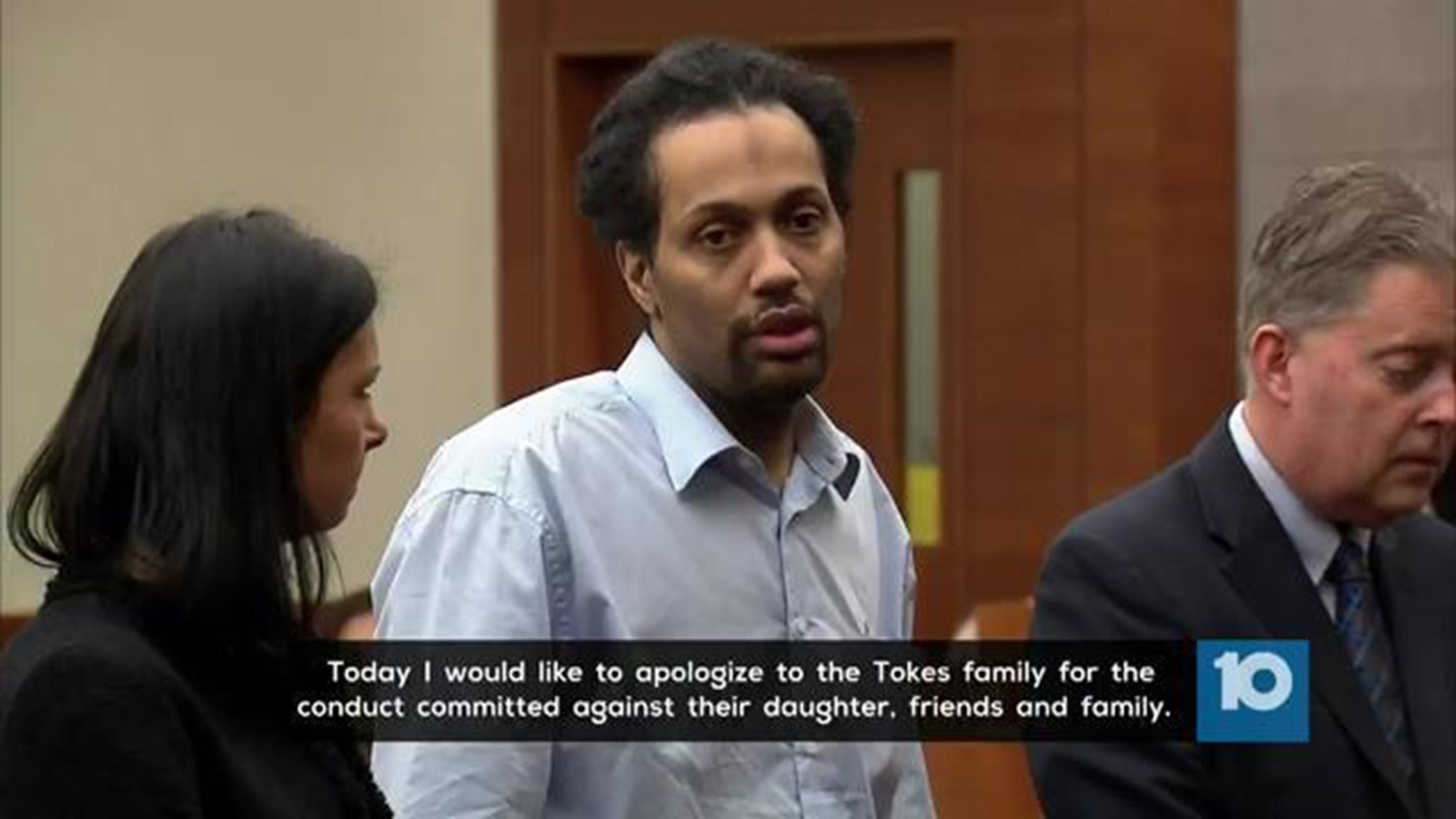Brian Golsby spoke directly to the jury for roughly 40 seconds Friday - admitting guilt to the kidnapping, rape, robbery and murder of Ohio State Student Reagan Tokes.
“Today I would like to apologize to the Tokes' family for the conduct committed against their daughter, friends and family. When I first got locked up, I lied about everything, said it was TJ. There is no TJ. TJ is not real. I made TJ up because I was trying to wiggle my way out of the crime that I committed...The only other thing I have to say is please have mercy on me,” Brian Golsby told jurors.
Jurors are still trying to decide if Golsby should receive the death penalty or a lesser penalty after convicting him earlier this week.
The Tokes family was not in court to hear Golsby’s statement. They declined to comment to 10 Investigates about today’s proceedings.
But Franklin County Prosecutor Ron O’Brien did react.
“He has the right to do that, and while he mouthed the words that he was sorry, over a year later that ah, fell on deaf ears with me. And certainly it didn't appear to be genuine and it didn't appear to be remorseful,” O’Brien told 10 Investigates. “I thought it was somewhat ironic that he then asked for mercy himself when certainly from beginning to end, he showed no mercy to Reagan Tokes.”
Prosecutor Ron O’Brien told jurors that Golsby kept Tokes under the threat of a gun for more than two and half hours before raping her and shooting her in the head twice at close range.
He argued death is the only appropriate sentence.
The aggravators “substantially outweigh any mitigating factors,” O’Brien said.
The defense team’s strategy is simple – keep Brian Golsby alive.
Golsby, 30, was convicted Tuesday of the 2017 kidnapping, rape, robbery and murder of Ohio State student Reagan Tokes.
The sentencing phase of his capital murder trial got underway Friday morning. It’s expected to resume Monday with additional testimony.
Jurors will have to weigh the aggravating circumstances of his case – the kidnapping, robbery and rape of Reagan Tokes – against the mitigating circumstances that Golsby’s defense team are presenting.
Defense attorney Diane Menashe began the day by reminding jurors that they cannot use sympathy in making their decision, “but the law says nothing about having empathy.”
“I am asking you on behalf of Brian not to kill him,” she said.
In making her appeal to the jury, Menashe laid out a timeline of Golsby’s childhood: that he was born to a teenage mother, was abused, was removed from his home four times and placed into foster care before he was 14. She also said Golsby was raped by a neighbor at age 12, acted out sexually, was sent to a Buckeye Boys Ranch where he received sex offender treatment and was later placed in the Department of Youth Services for petty crimes until he was 21. After that, he spent most of his 20s in the Ohio prison system serving out a six-year sentence for robbery and attempted rape.
He was released in November of 2016 – three months before Tokes’ kidnapping, rape, robbery and murder.
Dr. Howard Fradkin, a psychologist, is also testifying Friday morning. He visited Golsby four times in jail between late October and early November of 2017. He specializes in male survivors of sexual abuse, according to his testimony. 10 Investigates has obtained documents that show the judge authorized more than $10,000 in public funds to be given to Fradkin for his counseling of Golsby.
Fradkin said that Golsby didn’t receive proper treatment to address his childhood trauma while he was incarcerated during his teen years at the Department of Youth Services.
O’Brien asked if that meant if Golsby had received proper treatment he wouldn’t have committed any crimes?
Fradkin said: “I'm telling you that there is a great likelihood that he would have had a fighting chance to be very different."
Jurors must choose from four sentencing options:
- Life with the possibility of parole after 25 years
- Life with the possibility of parole after 30 years
- Life without the possibility of parole
- Death
The judge reminded jurors that if they decide that the aggravating circumstances outweigh the mitigating factors, they must choose death. If they believe the mitigating factors outweigh the aggravators of the crime, they must choose a lesser penalty.

